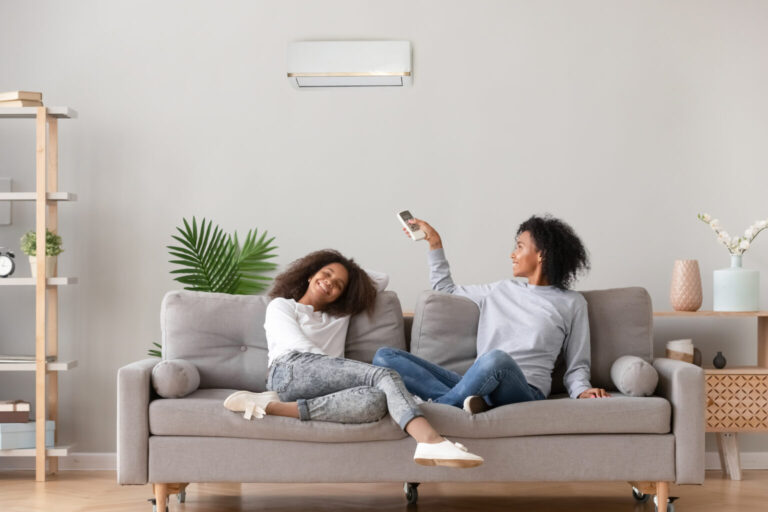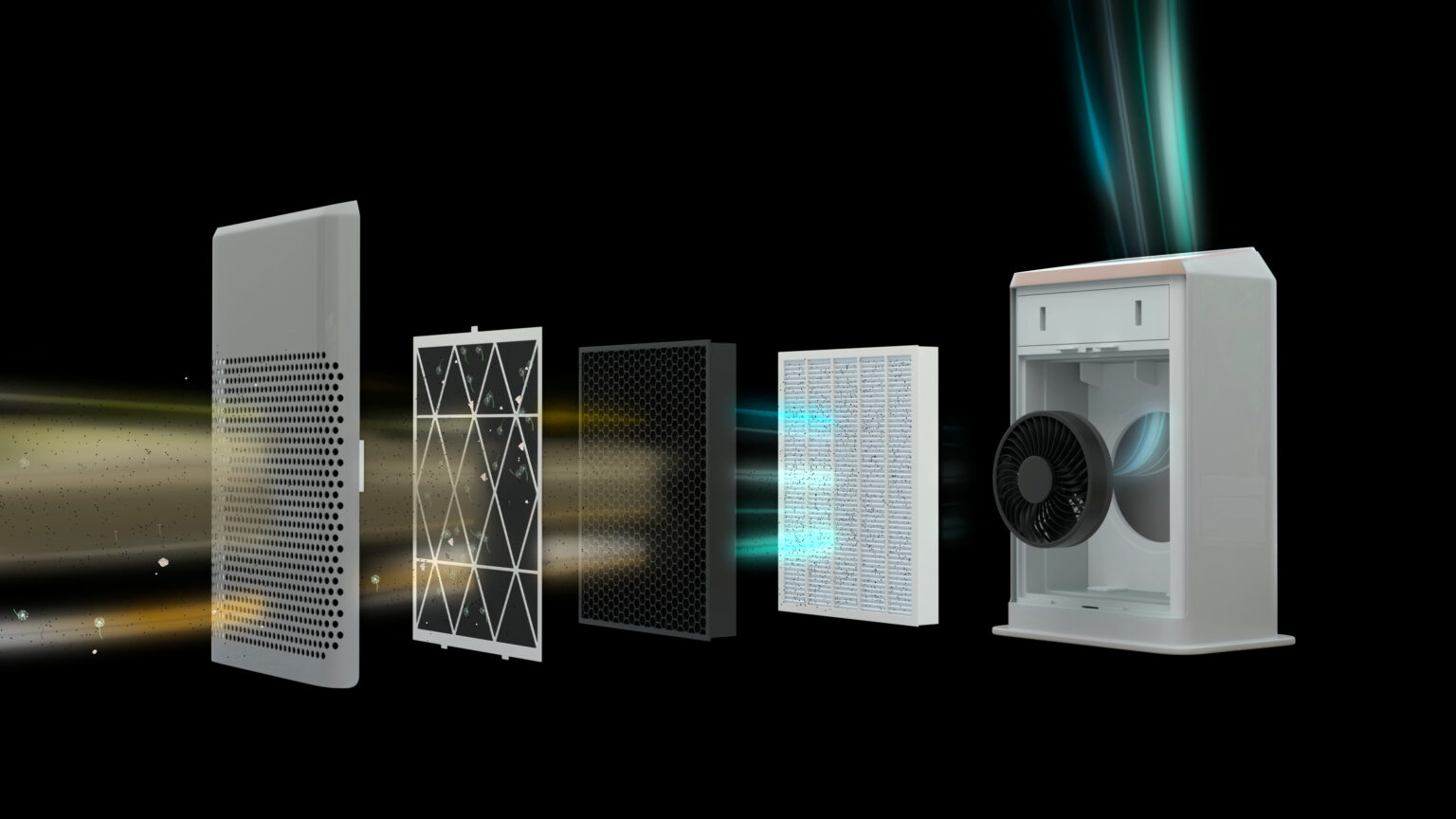Do air conditioners help clean up indoor air pollution?
Those who have air conditioners in their homes can attest to the benefits and comfort associated with an HVAC system. With a modern air conditioner in your home, you can adjust the temperatures and have the perfect indoor environment, either warm or cool air, depending.
And although ACs have tremendous benefits, there’s one question most people ask: Do air conditioners help clean up indoor air pollution?
In this post, we will discuss how the AC works, its true purpose, and whether it can clean up indoor air pollution. Read on.
The Purpose of Air Conditioners
An air conditioner is designed to cool your home when the air outside is hot. For effectiveness, you should close your doors and windows and turn on the AC. The air conditioning system absorbs the surrounding air, adjusts its temperature to your preferred degrees and sends it back.
Note that the AC only cools the air in your home and is not made to dehumidify or humidify the air, which is also an important aspect of indoor air. Nevertheless, ACs can adjust humidity levels, though sparingly, meaning you cannot control the degree of humidity inside your home.
Similarly, ACs are not meant to filter and produce fresh air. While some may have an air filter that can eliminate some dust, they cannot eliminate the tiniest impurities. Most small impurities, such as pollen, are pushed into the AC, but since these systems have standard filters that cannot catch the tiny pollutants, they are often returned back to the room.
Also, air ducts may collect some impurities that are also pushed back to the indoor air with the help of the AC. Essentially, your AC may be making your indoor air dirty instead of purifying it, particularly if your AC is dirty. So it’s best to clean your AC to avoid it pushing back the impurities into your home.
Contrary to what many people believe, indoor air is ten times more contaminated than outdoor air. While the cool air may seem refreshing, it actually contains tiny hard-to-detect impurities that may cause respiratory diseases and irritations.
Filtering Indoor Air
An Air conditioner may not clean indoor air on its own. Its standard air filters are meant to trap only the big pollutants. However, you can make your AC more effective in cleaning the air inside by replacing its filters with a HEPA filter (High-Efficiency Particulate Air). HEPA filters improve your ACs efficiency and get rid of tiny pollutants and irritants from your indoor air.
Once you have changed the filters, you need to clean them up once in two weeks. There is a misconception that ACs work best when the filters are dusty, but that is not true. In addition, you should clean the evaporator coils for effectiveness. If you fail to clean the coil, the airflow will be limited and, instead, affect the effectiveness and efficiency of your AC.
How do I choose the right filter?
The type of filter you select impacts the process of air circulation. Most ACs that trap the smallest pollutants tend to have poor airflow. So it’s critical to choose the right type of filter based on the pollution levels of your space and the size of your home.
To ascertain whether an AC will work efficiently for your environment, you should look at the MERV rating. This rating determines how tightly the filter is woven and, therefore, the type and size of pollutants it can trap. Ideally, residential filters have a Minimum Efficiency Reporting Value rating of between 8 and 13.
MERV 8 can eliminate up to 35% of indoor pollutants. The filter can trap dust mites, hairspray particles, and carpet fibers. On the other hand, MERV 9-12 has finer filtration capability and can rid up to 45% of indoor air pollution. These filters are highly effective and can immensely improve indoor air quality.
MERV 13 is considered the most effective air purifier and is convenient for people with weak immune systems. They can filter tobacco smoke, and sneeze droplets, bacteria, or other microorganisms. These filters trap up to 90% of the impurities. However, they have a lower airflow and should be changed every three months.
…
Although the AC can help to clean the air inside, not all pollutants are caught. The type of filter you have in your AC will determine the percentage of impurities filtered. Remember that the primary function of the AC is to cool your home, so to purify the indoor air, you must find an AC with the required filters.
If you need an AC system that can purify indoor air, you can speak with our experts at Jamison Heating & Cooling Services. At Jamison Heating & Cooling Services, we deal with Personal and Household Goods Repair and Maintenance. We offer you, among other services, installation, repair, and maintenance of all types of air conditioning systems at favorable prices.

There’s no doubt that air conditioning is a life-changing innovation when it comes to comfort. This type of HVAC system keeps us comfy in our homes, helping battle hot and humid summers and improving our overall quality of life.
But the contentious issue for homeowners is: do air conditioners help clean up indoor air pollution?
In this post, we’ll learn about air conditioners, how they work, whether they can purify indoor air, and how to maintain your ac for improved indoor air quality.
How does an AC work?
The primary purpose of air conditioning units is to cool air in your home during the hot summers when the outdoor air is hot. The unit works using an efficient process where it sucks in warm air, passes it through a cooling fluid, and relays it out at a lower temperature.
Given their operating mechanism, air conditioning units are limited in the tasks they can handle. For instance, ACs can hardly dehumidify your home. Though they may adjust humidity levels in the air, they’re limited as you can’t control the degree of humidity.
Do Air Conditioners purify indoor air?
We’ve already mentioned that an air conditioning system can cool your home and adjust the humidity in your home. But do they purify indoor air? The simple answer is not all of them.
Typically, air conditioners are not designed to clean the air. They cannot keep pollutants out of the air or trap debris—at least, not without using a filter. Instead, these cooling systems pull the impurities into the air conditioning unit and push them back into the room after some time.
How air conditioners clean indoor air?
Indoor air pollution is on a higher level compared to outdoor air pollution. There’s lots of dust, bacteria, pet hair, and many other allergens and contaminants trapped in the air inside your home. All these can be harmful to your health if not eliminated from indoor air.
While air conditioning units are not designed for cleaning indoor air, they can still be fitted with air filters to help to trap dust and debris. Air filters clean the air by sifting dirt and other impurities, providing fresh air that is healthy for breathing.
Air filters vary depending on their efficiency. A high-efficiency air filter will sift even the tiny contaminants like pollen, while low-efficiency filters can only sieve the large debris and dirt. Meaning high-efficiency air filters improve indoor air quality, providing fresh air that’s healthy for breathing.
How to choose the right air filter and improve indoor air quality?
You need to fit a high-efficiency filter in your air conditioning system to get fresh air. The filter’s efficiency is determined using the minimum efficiency reporting value(MERV). The MERV scale starts from 1 to 20, with 20 being the most efficient filter.
Air filters with a merv of between 8 and 13 are recommended for residential and commercial settings. Those rated 8 will sieve dust, pollen, hair, and dirt, while those at Merv 13 will eliminate bacteria and virus particles as well. Merv rating 17 through 20 are used in settings with absolute hygiene needs like surgical operating rooms.
You may also want to use a HEPA (High Efficiency Particulate Air) filter to increase your air conditioner’s efficiency. Hepa filter is among the most efficient filters and can eliminate up to 99.7% of contaminants in the air.
In addition to fitting the air filters to the HVAC system, people with allergies can use an air purifier to improve air quality. These devices clean the air making it healthy for your family to breathe.
How to maintain your air conditioner for clean indoor air?
Fitting a high-efficiency air filter isn’t enough to keep indoor air clean. You need to maintain your air conditioner to ensure it operates at its optimum.
Clean and replace your filters after every two weeks. This ensures that dirt does not accumulate and inhibit airflow through the air filters. Too much dirt on the filters will reduce their functionality.
Similarly, you need to keep the evaporator coils clean. If dirt is left to collect on the evaporator coils, it will limit airflow, making it less effective in cleaning the air. In addition, dirt corrodes and damages the evaporator coil, resulting in refrigerant leaks.
Keeping clean indoor air
Air conditioners do not clean up indoor air pollution; they just cool the air. However, you can fit a filter to enable your HVAC unit to trap dirt, pollen, and other contaminants from the air. Fitting or replacing a filter isn’t a walk in the park. You need an experienced technician to do the work for you.
At Jamison Heating & Cooling Services, we love improving indoor air quality to make the air you breathe healthy. Our technicians can help you fit and replace air filters and clean your HVAC unit to ensure it works at its optimum levels. Call us today for the best HVAC services in town.





